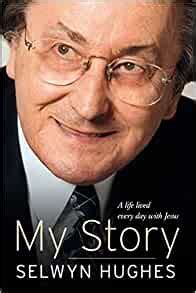A Quote by Jen Hatmaker
A fast is not necessarily something we offer God, but it assists us in offering ourselves
Related Quotes
The law of giving and receiving is fundamental, and relates just as much to God as it does to us. As we go through the door of giving ourselves to God in worship we find that God comes through that same door and gives Himself to us. God's insistence that we worship Him is not really a demand at all but an offer-an offer to share Himself with us. When God asks us to worship Him, He is asking us to fulfill the deepest longing in Himself, which is His passionate desire to give Himself to us. It is what Martin Luther called "the joyful exchange."
Voices surround us, always telling us to move faster. It may be our boss, our pastor, our parents, our wives, our husbands, our politicians, or, sadly, even ourselves. So we comply. We increase the speed. We live life in the fast lane because we have no slow lanes anymore. Every lane is fast, and the only comfort our culture can offer is more lanes and increased speed limits. The result? Too many of us are running as fast as we can, and an alarming number of us are running much faster than we can sustain.
If we offer something to Bangladesh, it's obvious that Bangladesh is offering something to us. And why shouldn't Bangladesh be able to keep its promises? Economically it's full of resources and can stand on its feet. Politically it seems to me led by trained people. The refugees who took shelter here are going home.
Be generous with your heart! The more we spontaneously give, the more connected and enriched we will feel. What if we use each other as our living temples, and put our best offering foot forward to see what direction life points us? I believe that if we live in a state of offering - even if we think we have nothing to offer - life blesses us and we feel more at peace with who we are and what we have.
The idea of being the Substitute in offering an atonement to satisfy the demands of God’s law for others was something Christ understood as His mission from the moment He entered this world and took upon Himself a human nature. He came from heaven as the gift of the Father for the express purpose of working out redemption as our Substitute, doing for us what we could not possibly do for ourselves.
Conscience, the sense of right, the power of perceiving moral distinctions, the power of discerning between justice and injustice, excellence and baseness, is the highest faculty given us by God, the whole foundation of our responsibility, and our sole capacity for religion. ...God, in giving us conscience, has implanted a principle within us which forbids us to prostrate ourselves before mere power, or to offer praise where we do not discover worth.
Let us pause before the Child of Bethlehem. Let us allow our hearts to be touched, let us allow ourselves to be warmed by the tenderness of God; we need his caress. God is full of love: to him be praise and glory forever! God is peace: let us ask him to help us to be peacemakers each day, in our life, in our families, in our cities and nations, in the whole world. Let us allow ourselves to be moved by God's goodness.
We are in danger of forgetting that we cannot do what God does, and that God will not do what we can do. We cannot save ourselves nor sanctify ourselves, God does that; but God will not give us good habits, He will not give us character, He will not make us walk aright. We have to do all that ourselves.
Though we are commanded to 'wash ourselves', to 'cleanse ourselves from sins', to 'purge ourselves from all our iniquities', yet to imagine that we can do these things by our own efforts is to trample on the cross and grace of Jesus Christ. Whatever God works in us by his grace, he commands us to do as our duty. God works all in us and by us.
God’s love sets us free from the need to seek approval. Knowing that we are loved by God, accepted by God, approved by God, and that we are new creations in Christ empowers us to reject self-rejection and embrace a healthy self-love. Being secure in God’s love for us, our love for Him, and our love for ourselves, prepares us to fulfill the second greatest commandment: To love our neighbor as ourselves.



































